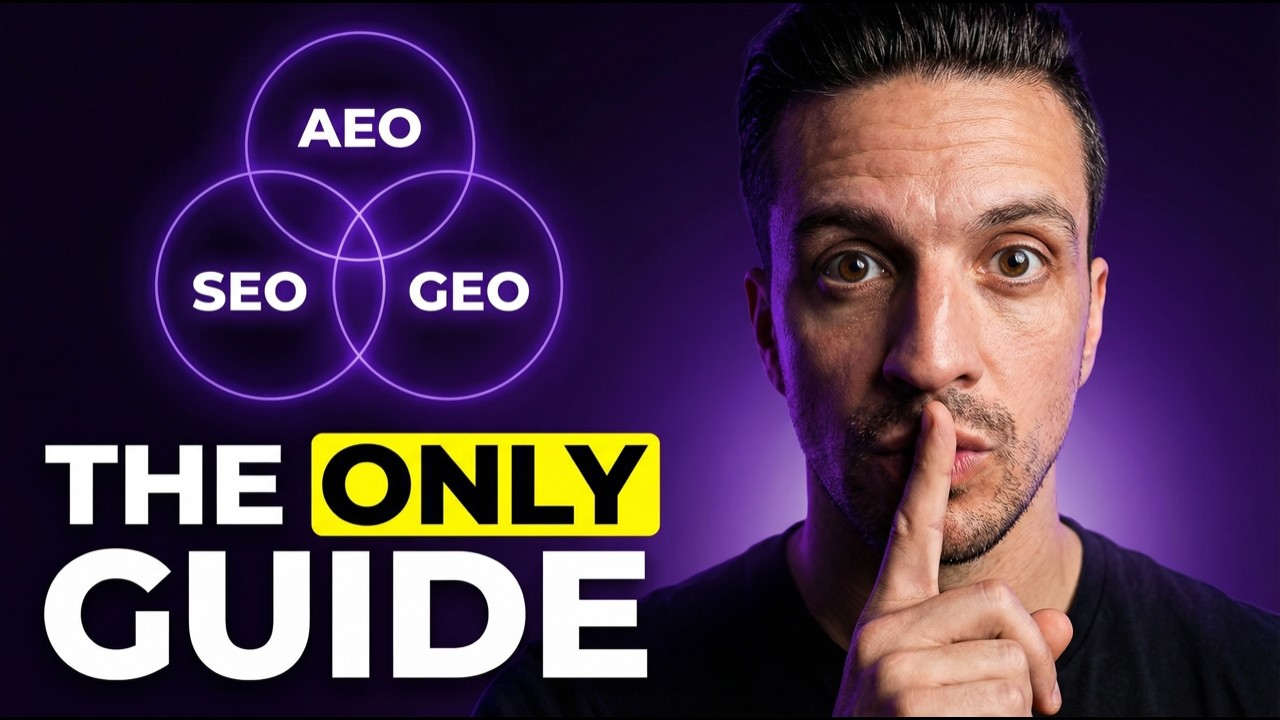
Understanding Generative Engine Optimization
Differentiating GEO from Traditional SEO
Generative Engine Optimization (GEO) is like SEO meeting the future. It's taking the old "get to the top of Google" approach but making sure your content gets a prime spot in those AI-generated responses. While your traditional SEO game is all about getting clicks on search result pages, GEO's buddying up with the AI to directly give users what they want to know, right then and there.
Don't get it twisted – SEO is still your bread and butter for getting noticed online. It's what gets people to your site in the first place. But with GEO, you're also sidling up to the AIs – the ones that chat with your customers and give them immediate answers. This makes GEO an emerging weapon in your online arsenal. Dive deeper into why the ol' SEO ain't dead yet over at is SEO dead with AI?.
Importance of GEO for Online Visibility
Small business owners, it's time to keep your eye on the ball and start tuning into what AI can do for you. AI-powered engines like Google's BERT or OpenAI's GPT-4o are the new gatekeepers of information, serving answers like a mom with a plateful of cookies.
Why GEO's got your back for staying visible online:
| GEO Benefit | What's in It for You |
|---|---|
| Wider Reach | Your stuff pops up in AI-generated nuggets of wisdom |
| Better Engagement | Users get what they need, leading to them sticking around |
| Step Up Your Game | Smarter than those still just doing regular SEO |
Eager to get started or just want the lowdown on GEO? Head over to how to optimize for geo. GEO isn't a replacement but a nice sidekick to your trusty SEO. Curious about how it all works? Check out what is generative engine optimization?.
Steps to Make Generative AI Work for You
If you're a small business owner wanting to lift your online presence in this AI-driven age, you've landed in the right corner of the internet. Let's talk about making your content sing for AI. We’ll go over crafting clear and snappy content, unleashing the magic of structured data, and spicing things up with a Q&A section.
Creating Content as Clear as Daylight
Keeping it plain and simple is the name of the game with generative AI. These clever tech whizzes love gobbling up info that doesn’t make them sweat. Break it down like so:
Curious about why plain content packs a punch? Check out our deep dive on how to optimize for geo.
Structured Data: Your New Best Friend
Sprinkle some structured data magic, like schema markup, and see your site shine. It’s like giving AI a shortcut to your good stuff. Think of these as AI’s cheat codes:
Hot Picks for Schema:
These might just land your content in those fancy AI-generated answers. Google’s Structured Data Markup Helper is your trusty sidekick for this task.
For the lowdown on all things structured data, explore how to rank in generative engine optimization.
Crafting Q&A Sections That Pop
Q&A sections are like catnip for AI-generated results. They tackle user curiosities head-on and dish out the answers they crave.
How to Rock the Q&A:
For a closer look at mastering Q&A sections, navigate to what is generative engine optimization?.
Embracing these strategies will level up how your content performs in the AI-driven search grid, bringing us full circle to "how to optimize for generative AI?"
Spicing Up Content for Generative Optimization Ninjas
Mixing Up Your Content Game Plan
If you're all about stepping up your generative AI game, listen up: Diversifying your content isn't just some fancy talk, it's your secret weapon. By mixing up your content styles, small business owners snag varying audience interests and slip into the radar of those ever-watchful AI engines.
Make it with Videos
Videos are like catnip for online engagement. Use them to teach something, show off your latest product magic, or let happy customers do the talking. These little gems aren't just fun; they spread like wildfire, ramping up your site’s street cred and eyeballs.
Infographics that Speak Volumes
Let’s face it, nobody wants to wade through a wall of text. That’s where infographics come to shine. They break down complex data into eye-friendly bites, perfect for demystifying tricky subjects or flaunting stats. They sprinkle life onto your posts and help everyone "get it" at a glance.
Pop Culture with Podcasts
Pods are where the cool cats hang out. Chat about industry scoop, bring in experts, or start conversations. Podcasts can reel in loyal fans and beef up your content collection in no time.
Got it? Let's break it down some more:
Content TypeWhat's the Big Deal?VideosFun, share-worthy, and you can do a lot with themInfographicsSimple, pretty, and smart storytellingPodcastsBuilds a fan base, friendly vibes, perfect for multitaskers
Shuffling Content Cards
Throwing different content types into your mix is all about staying in tune with the various questions budding from generative AI models. So, let’s get smart about it:
Smart tips for each content type:
By mixing and matching content styles, small biz players can totally rule the generative engine optimization scene.
Leveraging AI Research Tools
OpenAI's Deep Research: Making Life Easier for Small Businesses
For small business owners wanting to make a splash online, OpenAI's Deep Research is like having a superpower. It's fast, it's thorough, and it does the tedious stuff for you. Instead of slogging through endless articles or reports, you get detailed, citation-packed insights at lightning speed, freeing up time to work magic with your generative engine optimization (GEO) skills.
FeatureBenefitSpeedKaboom! Super fast reportsAccuracyLoads of plusses on citationsQualityHelps you build top-notch content
AI research tools aren't just cool toys—they are game-changers in how you approach SEO. Trusting in OpenAI's tool isn't just about going faster—it's about ensuring everything's right on the money. This way, your content isn't just something search engines love; it's something your readers won't be able to resist either, helping you master how to optimize for generative AI.
Kickstarting Content Creation Magic
AI tech like OpenAI's Deep Research supercharges your content process like never before. Gone are the days of spending hours hunting for facts and links. Now, you can bring in strong, accurate info with ease, plug in useful Q&A bits, and keep both GEO and SEO buzzing.
For the small business brigade, this translates to top-tier content without burning the midnight oil. Toss in some structured data and the all-important Q&A sections, and suddenly, you're more than just a blip on the online radar—you're a beacon. That's when the good stuff starts happening, like climbing those rankings and grabbing people's attention.
Get even more strategies in your toolkit by checking out how to rank in generative engine optimization and look at different ways to optimize for geo. These insights marry beautifully with what you get from AI tools, giving your digital marketing plans that nice, glossy finish that screams both smarts and style.
Embracing AI research tools like OpenAI’s Deep Research can be the secret sauce that takes you from "meh" to "wow" online, wrapping answers smoothly around those doubts about whether is GEO replacing SEO?. Mixing up some classic SEO savvy with AI magic leads to a solid, powerful digital edge that resonates with your audience and gets you noticed.
Case Study: From Traditional SEO to AI Search Visibility
Let me share what happens when you implement GEO alongside traditional SEO correctly.
Will, a financial advisor in Arizona, came to us struggling to get any organic visibility. His pages were stuck on page 3 of Google, and he'd never even considered AI search tools like ChatGPT or Perplexity.
We focused on the fundamentals:
- Built hyper-local service pages for each Arizona location he served
- Added comprehensive schema markup to every page
- Ensured every claim in his content was backed by credible sources
- Optimized his Google Business Profile completely
- Created in-depth content that genuinely answered client questions
Within weeks, Will was ranking #1 on Google for his target keywords. But here's what we didn't expect: he also started showing up in Perplexity and ChatGPT when people searched for financial advisors in Arizona.
The key insight? If you do the basics of traditional SEO correctly, you're automatically doing GEO. The same signals that tell Google you're trustworthy—authoritative content, proper schema, credible sources—are exactly what AI systems look for when deciding who to recommend.
This is why I tell people not to panic about GEO. Don't treat it as something completely separate from SEO. Treat it as an extension of doing SEO well.
Another Proof Point: Tim's ChatGPT Win
Tim Armstrong, a mortgage professional in our community, recently shared that a client came to him saying: "ChatGPT told him I might be the best option in America for him." Tim closed that deal the next day.
Tim didn't do anything special for "ChatGPT optimization." He built a solid website, created helpful content, and established himself as an authority. The AI systems figured out the rest.




